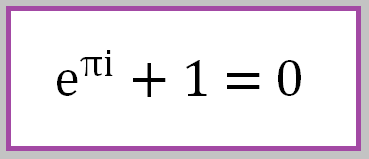One of the most, if not THE most, beautiful formulas in math, is from Euler:
It combines in it a relation between the number e, the number Pi and the complex number i, plus the basic math symbols 1, +, = and zero. Is that not amazing?
More info on this formula can be found here.
The Complex type in C# is available as of .NET v4.0 and lives in the System.Numerics namespace.
As this type is not used on a regular basis it is not included as reference in every project by default.
So you have to include that reference first. Don't forget to add using System.Numerics; to your .cs file either.
Enjoy!
